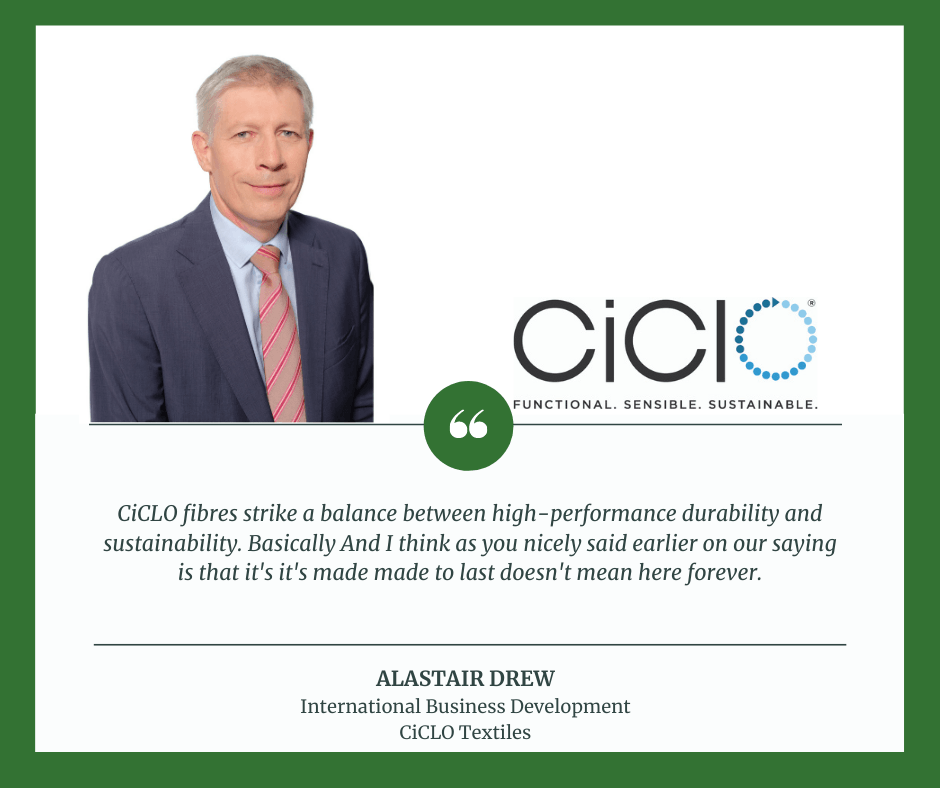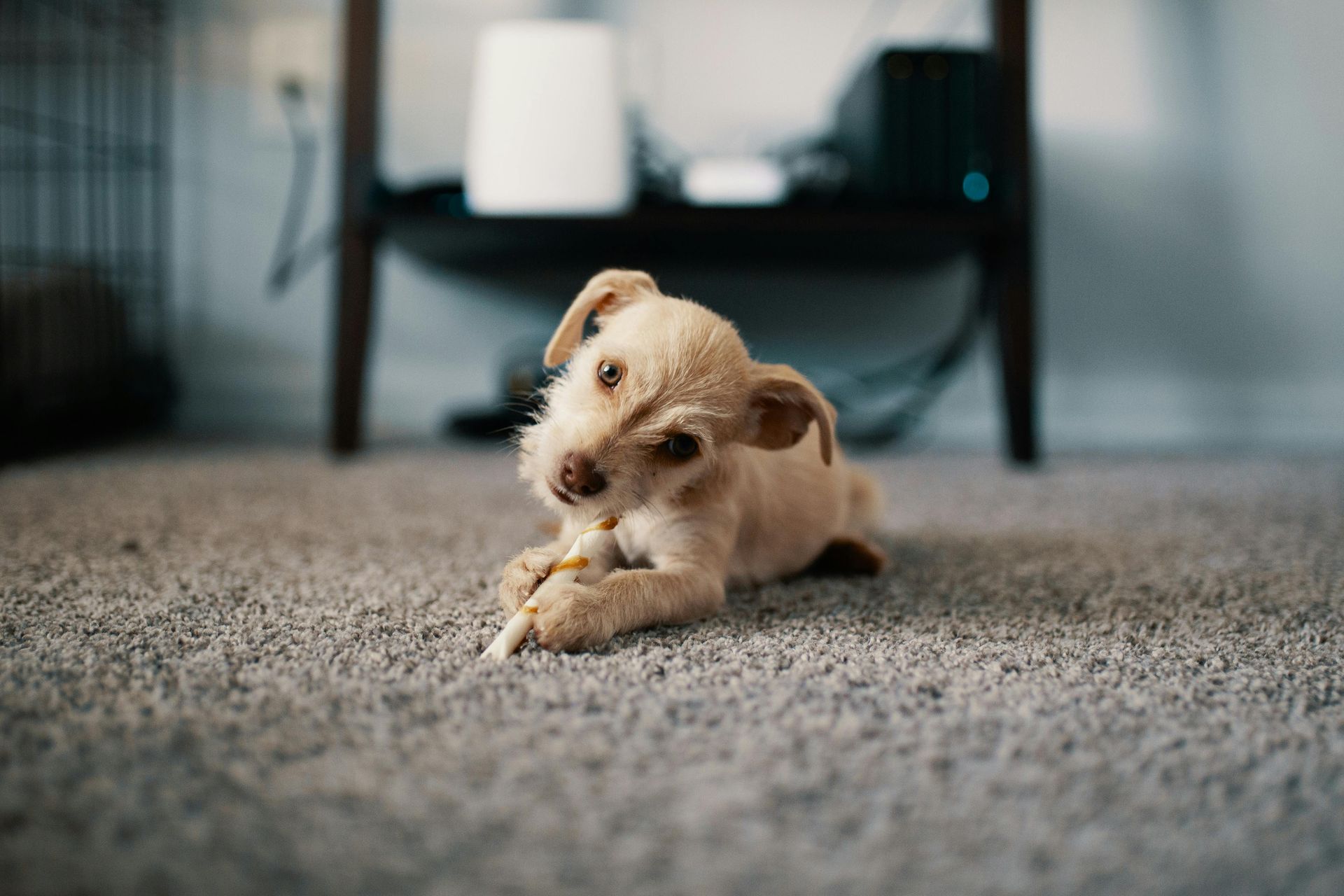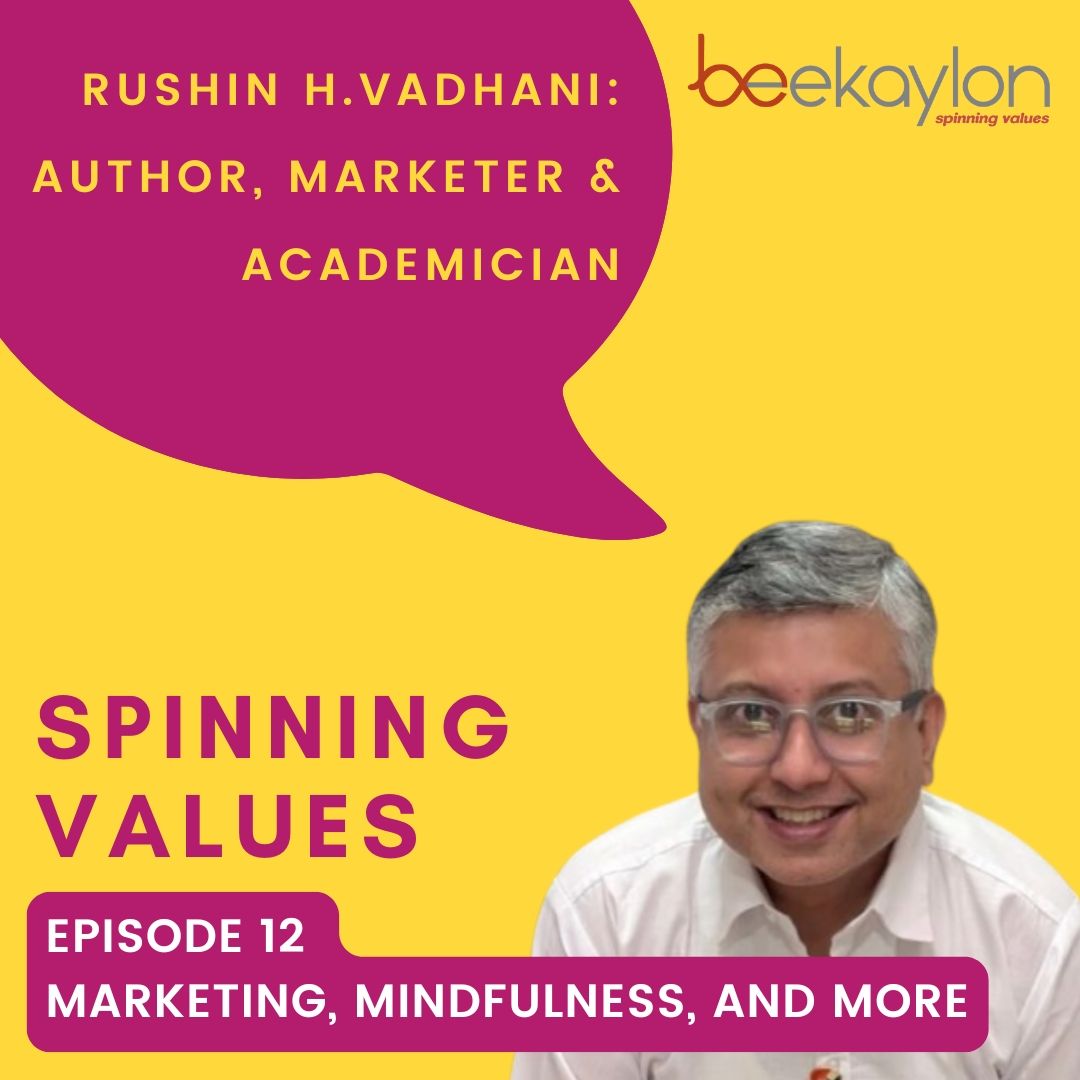Spinning Values Podcast - Ep. 1 - Making Biodegradable Synthetic Fibres a Reality
Biodegradable Synthetic Fibres:
In Conversation with Alastair Drew, CiCLO Textiles

Spinning Values Podcast:
For our opening episode, we sat down with Alastair Drew, CiCLO Textiles,
to discuss their revolutionary product, which when combined with synthetic yarn, during melt extrusion process, will help accelerate the biodegradation rate of synthetic textiles in the landfills and in the oceans.Do subscribe to this podcast on your favourite podcast app.
Transcript of the Conversation with Alaistair Drew, CiCLO Textiles
Welcome to Spinning Values. a podcast brought to you by Beekaylon Synthetics. And I am your host Rajeev. This is a show where we talk about sustainability and innovations in the textile industry. Do you know that every single day, 44 million pounds of synthetic textiles are sent to the landfills in the US alone. So what if you make these textiles bio-degradable? To discuss this, we have Alastair Drew from CiCLO textiles. Synthetic yarns when combined with CiCLO becomes bio-degradable. According to one of the founders of this company. And I quote, CiCLO fibers were invented from a conviction that built to last shouldn't mean here, forever. Let us find out more about CiCLO.
Hello and welcome to the podcast, Alastair.
Alastair
Hi Good Morning.
Rajeev
Yeah this is a good evening here I'm from Auckland You're in Hong Kong.
Alastair
Yes yes. Just to admit it's mid-day actually. So it's actually technically it's good afternoon.
Rajeev
Alright Awesome So can we go into the show with a bit of an understanding of what your role and what you do.
Alastair
Sure
Yeah My name is Alastair Drew and I represent the CiCLO business in Asia and Europe. And most of my work is business development. Developing relationships with brands and retailers in the apparel & garment sector well as developing relationships with supply chain partners one of which we're here to talk about today Beekaylon. So that's really my job trying to convince people of the technology get over the messages develop commercial relationships.
Rajeev
Right, so focusing on CiCLO to start with what exactly does your company do can you give us a brief overview.
Alastair
Sure. Yeah basically CiCLO technologies reduce pollution in the oceans plastic pollution in the oceans and reduce the persistence of synthetic textiles that go into landfill. I mean basically CiCLO technology creates biodegradable hotspots on the surface of the polyester and the CiCLO itself it's the thing that we sell to fiber manufacturers. And they embed our technology Into the polyester during the melt extrusion phase of the manufacturing process. So I mean fundamentally we are a sustainable fiber.
Rajeev
Right. So the product that you manufacture or your technology is basically combined with the synthetic yarn that Beekaylon produces.
Alastair
Yeah that's correct. They embed our technology Uh we sell them what is called a master batch.
And they use a very small percentage of that to manufacture polyester filament yarns during their process in their factory. So looking at the supply chain and the whole production process How do you see the relationship with Beekaylon and why is it important in the whole green space.
I mean Beekaylon is a very important business partner for us. We call them a certified manufacturer of CiCLO Yarns. Basically we rely pretty heavily on Beekaylon to professionally represent CiCLO in the Indian market. And they conduct the sales and marketing activity. Selling, representing us to their customers. I mean they've got a very wide customer base in India and we work with them to reach their customers and potentially other customers outside of India of course as well where they export to. And of course their primary role is to manufacture good quality fibers containing CiCLO technology. Our role really is to provide the education the technology and also to conduct tests all of the fibers that they make. So they will send us a sample from each batch they make we test that. That's important for our customers. Our customers want to be reassured that we are testing and checking the product and issuing the right certification to Beekaylon. Then Beekaylon issue those certificates to their customers. I mean they've been great to work with They're very focused on sustainable innovation and they're great at marketing as well. hence this podcast.
Rajeev
Awesome. That's great to hear, Alastair. Yeah, so let's deep dive into the technology that your company markets and produces. So there's many aspects of modern life which are known to cause environmental harm. Like fossil fuels disposable plastic et cetera. But the impact of synthetic textiles is less obvious. Right. So I read an interesting line from your website, which says, made to last doesn't have to mean here forever. so in this context how does bio degradable process actually work?
Alastair
I mean it is quite a complex topic. And although I'm a technical sales I'm not necessarily a scientist that understands or can explain the deep science here. But you know I can give you a very not high level but what a good overview of the process. Basically bio degradation Is the ability of a substance to be broken down both physically and or chemically by naturally occurring microorganisms such as bacteria resulting in the creation of basic natural elements. For example some of these basic natural elements include things like carbon dioxide, methane, water, minerals and even some new microbial cells which we call biomass I'm really for bio degradation to happen kind of need three things I guess if we're going to try and keep it simple. We need microbes that are present the environment. We need moisture And we need time. Because biodegradation It doesn't happen fast happens at the pace of nature You know it's quite a relatively quite a slow process and of course for our products we don't necessarily want it to happen fast much quicker than never really is the key thing. Biodegradation could occur in aerobic conditions meaning environments that require oxygen. And those are environments like the ocean. And also what we call anaerobic conditions meaning environments without oxygen. An example of that is landfill where many of our textiles end up. Uh So biodegradation is really a natural process. Where microorganisms break down materials.
To summarize it I would say the molecular structure of organic material is broken down by microorganisms creating biogas and leftover matter called biomass.
Rajeev
Right So in this process how does CiCLO fibers How does it work like you add additives into the yarn and then it becomes bio-degradable?
Alastair
That's correct, yes. The addition of our technology into the fibers creates lots of if you call hotspots in the fiber will enable microbes to interact with the polyester when it's in the final resting place out of the ocean or soil or landfill and that kind of encourages the microbes and the bacteria. And the enzymes to kind of consume the plastic or see the plastic as food. So we are accelerating a process significantly by the addition of CiCLO into polyester.
Rajeev
so I just wanted to kind of clarify certain terms here Alastair. Because so many terms are being bandied about in the media on the internet. And many of them used interchangeably. Having said that, can you explain what the difference between biodegradable and compostable and are CiCLO fibers compostable?
Alastair
Let's first of all say that CiCLO fibers are not really designed to be compostable. And there's a good reason for that. Because Industrial composting is not usual end of life method for textiles. Your textiles simply don't go into a composting environment. But composting is aerobic biodegradation. But it's different to ocean or soil biodegradation. Yeah because ocean's soil or natural environments whereas composting is controlled. So really it's not a viable solution for textiles. Composting is used for organic matter mostly such as food waste, trees, grass, branches things like that. But textiles are not just not allowed into a composting environment. So we kind of don't really focus on composting. We focus on more I guess more natural environments. Let's just soil, sea water. And also obviously landfill where a lot of textiles do end up. But you know having said that we have 44 million pounds of synthetic textiles being sent to the landfill every single day. Wouldn't it be better If they get composted? Where do you see that technology coming out in the future?
I know that some companies are using the composting test. As a method of marketing and advertising their textiles. Like at the moment I can't see composting or industrial composting accepting fabrics or garments.
Rajeev
All right In that case my next question flows from that. Can textiles manufactured using CiCLO technology can they be recycled?
Alastair
In theory, yes. And the reason I say in theory is that many garments currently are made from wide range of different fibers. Synthetic fibers, natural fibers. And a lot of garments have buttons and zips and fasteners. So, actually recycling of garments is pretty complex. There are really other barriers to commercial widely adopted recycling of textiles. We won't be standing in the way of that.
Rajeev
Right It's possibly because the other material That's like you mentioned zips and buttons and such which had to be removed before it becomes recyclable, right?
Alastair
Yeah in a lot of cases. I mean I know some companies are quite rightly focusing on producing a garment. Let's say all from one material such as all polyester which means then would make easier to recycle the shore and if that was possible and became viable in the longer term about total polyester garments then the addition of CiCLO wouldn't stop that product being recycled.
Rajeev
Right or we can just reduce the number of clothes that we buy!
Alastair
Yeah Yeah. We should be recycling our products. And really to be honest with you many people already do recycling themselves. They pass on their garments to family and friends or they give them to charity. You know these clothes often have a really useful second or third life already that's a kind of recycling. And I guess we can call that I think probably down cycling even at the end of that second or third life at the moment a lot of those products are going You know into landfill. I think only 15 percent of garments and textiles down cycled into natural fibers. You know most of those are cotton and wool. So you know at the moment biodegradation of textiles in landfill is a reasonable solution for these garments that make their way to landfill until there is a mass adoption of alternatives. I can see CiCLO is providing a a really good benefit. Plus of course CiCLO could be used to enhance the biodegradation of microfibers that are being released into the atmosphere and into the oceans. You know we do support recycling and we want our products to be helping the total sustainable solution.
Rajeev
Here's my next question. Are CiCLO fibers toxic? And what happens to the microfibers? Does that become biodegradable as well?
Alastair
Fibers that contain CiCLO find their way into the drains and down through into the wastewater treatment plants. Ultimately potentially out into the ocean and waterways they will be biodegradable in this sea water environment. And in the soil environment and I know also just to say there are many companies working on reducing the shedding of fibers through new constructions of the fabrics new finishing processes. I know some people who even developing washing machines is trying to capture these fibers. Our garment factories that are also washing and dyeing they are starting to look seriously at filtering all of their affluent to prevent these fibers going into the ocean. But you know it is happening and there's more and more research being done to measure the amount of fiber given off during the washing process and CiCLO is a fantastic solution for those fibers to biodegrade. And sort of pick up on I think your the first point is that you Is it toxic or does it cause any harm the answer is no. We've done a third party testing. There's a company in Germany called Oeko-Tex and they've researched and reviewed the CiCLO product and issued us with a eco passport certificate. Which basically checks to make sure there's no restricted substances or harmful chemicals. we've passed that. So there's none of those issues at all. In addition we've done some long-term testing. We've tested what's left over. We talked about water and carbon dioxide being given off and some cellular structure. And we tested that to make sure that's not giving any toxic byproducts. So we're pretty confident we've got the necessary proof for brands and retailers that they require so that we can demonstrate that we're not harming the environment.
Rajeev
My final question before we close our conversation is that the products that other producers downstream take Beekaylon yarn infused with your technology the products they make out of that let's say I know carpets or garments so whatever it may be does it affect its durability does it affect its quality. Or is there any such impact?
Alastair
So talking about downstream from Beekaylon I mean I guess the first thing to say is that all of those downstream fabric mills or dyeing houses or when you're garment factories. No they don't have to do anything different. they can use their existing manufacturing. And processing machinery and equipment nothing needs to change as a result of CiCLO And we don't find any difference in physical properties or tensile strength or any applications or usage conditions that change. We've had a lot of development particularly in the garment sector. And a lot of fabric has been made and tested by our brand partners and retailers and they've all passed things like wear tests, wash tests that these brands carry out There's no performance loss, there's no loss of durability CiCLO biodegradation does not happen in the supply chain. Only happens when the fibers reach at the end of the life in the ocean or soil or landfill When we have the presence of microbes and moisture and time. So we're not going to see any biodegradation in our supply chain or in our closets or our warehouses. So we don't need to worry about that. So we think CiCLO fibers strike a balance between high-performance durability and sustainability. And I think as you nicely said earlier on our saying is that it's made to last doesn't mean here forever.
Rajeev
All this technology Alastair, it's kind of downstream. Unless we as humans use less products, use less clothes. Then, you know, the whole landfills. It will be filled up with less textiles. You know that might change the whole landscape. Am I a right? What do you think?
Alastair
So yeah I do see the need for more durable clothing that you're gonna use time and time again rather than discard easily and quickly. I see the circular economy developing. I see chemical recycling developing. I see that the whole industry. Right through the supply chain of garments and textiles is, it's doing a lot. We're not the only ones. CiCLO Isn't the only one that's putting a lot of effort Into to helping with this issue. Whether it's new retail solutions where people hire or rent clothing rather than buy it. There's a lot going on. There's a lot of second hand clothes being sold between peer to peer platforms. And the digital environment. So, I think there's lots going on. It's a really kind of exciting industry to be in with lots of innovation. but at the end of the day are we humans, even people like me, that aren't millennials, older consumers need to adapt and reduce our footprint.
Rajeev
Thanks Alastair. Thanks for your time. That was a really enlightening. conversation how can listeners get more information about CiCLO? where can we get information? Can you tell our listeners?
Alastair
Yes. Obviously we have a website. www.ciclotextiles.com . So yeah. Please connect with us and obviously connect, if you are in the market in India, then can connect with Beekaylon. The people there will be able to support, the initial inquiry. And if the inquiry goes deep into the technology then I can support.
Rajeev
Thanks Alastair. That was a really helpful and enlightening, as I said. Thanks for your time.
Alastair
Thank you for listening.
Rajeev
So that is the end of Episode One of Spinning Values, a podcast brought to you by Beekaylon Synthetics. Thank you Alastair for joining us and talking to us about such a crucial topic. In the coming episodes, we will be talking to companies that are coming out with such innovative solutions for problems that not only impact the textile industry, but everyone on this pale blue planet.
So until next time, reduce, reuse, or recycle. This is Rajeev signing off.



